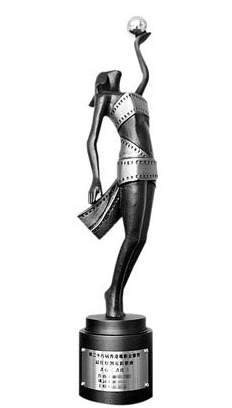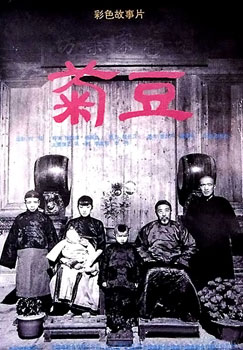
The Bank of China Tower is a skyscraper located in Central, Hong Kong. Located at 1 Garden Road on Hong Kong Island, the tower houses the headquarters of the Bank of China Limited. One of the most recognisable landmarks in Hong Kong, the building is notable for its distinct shape and design, consisting of triangular frameworks covered by glass curtain walls.

Samuel "Sammo" Hung Kam-bo is a Hong Kong actor, martial artist, film producer and director, known for his work in martial arts films, Hong Kong action cinema, and as a fight choreographer for other actors such as Jackie Chan.

Gong Li is a Chinese actress. Regarded as one of the best actresses in China today, she is known for her versatility and naturalistic performance. She starred in three of the four Chinese-language films that have been nominated for the Academy Award for Best International Feature Film.

Mohammed Aamir Hussain Khan is an Indian actor, filmmaker, and television personality who works in Hindi films. Referred to in the media as "Mr. Perfectionist", he is known for his work in a variety of film genres, particularly in films which raise social issues like education and gender equality, or which have a positive impact on society in India or abroad. Through his career spanning over 30 years, Khan has established himself as one of the most notable actors of Indian cinema. Khan is the recipient of numerous awards, including nine Filmfare Awards, four National Film Awards, and an AACTA Award. He was honoured by the Government of India with the Padma Shri in 2003 and the Padma Bhushan in 2010, and received an honorary title from the Government of China in 2017.

Farewell My Concubine is a 1993 Chinese-Hong Kong epic historical drama film directed by Chen Kaige, starring Leslie Cheung, Gong Li and Zhang Fengyi. Adapted for the screen by Lu Wei, based on the novel by Lilian Lee, the film is set in the politically tumultuous 20th-century China, from the early days of the Republic of China to the aftermath of the Cultural Revolution. It chronicles the troubled relationships amongst two lifelong friends, the Peking opera actors Cheng Dieyi (Cheung) and Duan Xiaolou (Zhang), and Xiaolou's wife Juxian (Gong).

Leon Lai MingSBS BBS MH, is a Hong Kong actor, film director, businessman, and Cantopop singer. He is one of the "Four Heavenly Kings" of Hong Kong pop music. He uses his Chinese name "Lai Ming" or "Li Ming", which literally means "dawn".

Orange Sky Golden Harvest (OSGH), previously known as Golden Harvest from 1970 to 2009, is a film production, distribution, and exhibition company based in Hong Kong. It dominated Hong Kong cinema box office sales from the 1970s to the 1980s, and played a major role in introducing Hong Kong action films to the world, especially those by Bruce Lee, Jackie Chan, Jet Li, and Sammo Hung.

The Tank Man is the nickname given to an unidentified individual, presumed to be a Chinese man, who stood in front of a column of Type 59 tanks leaving Tiananmen Square in Beijing on June 5, 1989. On the previous day, the government of China cleared the square of protesting students after six weeks of standoff, in the process killing hundreds or even thousands of people mostly in other parts of Beijing. As the lead tank maneuvered to pass by the man, he repeatedly shifted his position in order to obstruct the tank's attempted path around him, and forced the tanks to halt to avoid running him over. The incident was filmed and shared to a worldwide audience. Internationally, it is considered one of the most iconic images of all time. Inside China, the image and the accompanying events are subject to censorship.

A box office or ticket office is a place where tickets are sold to the public for admission to an event. Patrons may perform the transaction at a countertop, through a hole in a wall or window, or at a wicket. By extension, the term is frequently used, especially in the context of the film industry, as a metonym for the amount of business a particular production, such as a film or theatre show, receives. The term is also used to refer to a ticket office at an arena or a stadium.

The Hong Kong Film Awards, founded in 1982, is an annual film awards ceremony in Hong Kong. The ceremonies typically take place in April, and have mostly been held at the Grand Theatre of the Hong Kong Cultural Centre since 1991. The awards recognise achievement in various aspects of filmmaking, such as directing, screenwriting, acting and cinematography. The awards are regarded as the Hong Kong equivalent of the Academy Awards.
Corey Yuen Kwai is a Hong Kong film director, film producer, action choreographer, and former actor.
Rae Dawn Chong is a Canadian-American actress. She made her big screen debut appearing in the 1978 musical drama film Stony Island, and in 1981 starred in the fantasy film Quest for Fire, for which she received the Genie Award for Best Actress.

Red Sorghum is a 1987 Chinese film about a young woman's life working in a distillery for sorghum liquor. It is based on the first two parts of the novel Red Sorghum by Nobel laureate Mo Yan.

Ju Dou is a 1990 film directed by Zhang Yimou and Yang Fengliang, starring Gong Li as the title character. The film, based on the novel Fuxi, Fuxi (伏羲伏羲) by Liu Heng, is a tragedy that revolves around Ju Dou, a beautiful young woman sold as a wife to Jinshan, an elderly cloth dyer. The film was produced using the vivid Technicolor process, long after it had been abandoned in the United States. It became the first Chinese film to be nominated for an Academy Award for Best Foreign Language Film.
This is an index for the list of films produced in mainland China ordered by decade on separate pages. For an alphabetical listing of Chinese films see Category:Chinese films
2017 in film is an overview of events, including the highest-grossing films, award ceremonies, festivals, a list of films released, and notable deaths.
2018 in film is an overview of events, including the highest-grossing films, award ceremonies, critics' lists of the best films of 2018, festivals, a list of films released, and notable deaths.












